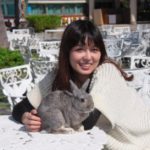Please use this link to go to the submission page. After logging in (you might need to make a user if you don’t have one) select Author submission and in the overview of tracks select “Notes”.
Notes submissions will undergo a double-blind, single-round peer review by the ECSCW program committee leading to an accept or reject decision. Notes submissions should be anonymized. Please remember to choose track “Notes” for your submission. Please note that as author you might be asked to review papers from other authors.
Important Dates
Submission Format & Process
While the length of notes is flexible, we expect they will be no longer than 6,000 words without references. Longer versions should be justified. All authors must follow the notes template available in Latex, RTF, or MS Word format.
Submissions will be selected for presentation based on the opinions of the reviewers. No shepherding or additional rounds of review are planned. For any queries, please, do not hesitate to contact the ECSCW 2023 Notes Chairs.
Notes Chairs
For any queries, please, do not hesitate to contact the ECSCW 2023 Notes Chairs at notes@ecscw.eusset.eu.

Chia-Fang (Christina) Chung
Indiana University Bloomington, USA
Syed Sajid Hussain
Norwegian University of Science and Technology
Fabiano Pinatti
University of Oslo, NorwayNotes Description
We invite researchers and practitioners to submit Notes to the ECSCW 2023. With notes, the authors have the opportunity to publish concise and focused empirical or conceptual studies to support progress in a specific sub-domain of CSCW.
If you want to present a pointed insight from your fieldwork, have a compact argument to make, or describe an insightful experience from designing, implementing, or sustaining a system for collaboration, this publication format is the right choice for you. This could include, but is not limited to the following:
- A new methodology for designing or examining CSCW technologies
- Insights from the implementation of an IT system supporting collaboration
- First experiences and insights from the use of a new system supporting collaboration
- A case study of collaborative technology in a domain not typically studied in CSCW research
- A discussion or unfolding of a new CSCW concept or theory
ECSCW Notes should make a specific, explicit contribution on their own but are not expected to provide a full length of discussion or related work or scientific background as broad and complete as paper submissions. At the same time, the reviewers will expect the Notes to link to CSCW research. If you have a provocative, challenging idea that still needs more shaping and discussion, you might want to consider Exploratory Papers instead.
We look forward to previously unpublished, concise, and insightful submissions that make substantive progress in a narrow but appealing field of CSCW and can benefit from presentation and discussion at the ECSCW conference.If you are submitting a note on accessibility or assistive technology, please refer to the SIGACCESS guidelines on writing about disability.
Selection Process
Each Note will have at least two anonymous reviewers assigned by the Notes Co-Chairs. The final decision on acceptance/rejection will be made by the Notes Co-Chairs, relying on the reviews by the anonymous reviewers.
Notes that are not in the appropriate submission format or do not fall in the scope of the conference will be desk rejected.
Contributions submitted as Notes can, at the discretion of the Notes Co-Chairs and Exploratory Papers Co-Chairs, be redirected to the Exploratory Papers track.
Publication & Copyright Information
All accepted Notes will be published in the European Society for Embedded Technologies (EUSSET) digital library (http://www.eusset.eu/digital-library) as an edited collection with an ISBN. Each paper will be assigned a DOI.
The EUSSET digital library (DL) is an open-access repository. The EUSSET DL does not ask for a full transfer of copyright from authors. Instead, it requires only sufficient rights that allow “readers to read, download, copy, distribute, print, search and link to the full texts of articles, or use them for any other lawful purpose except where otherwise noted” (for full information, please see here: https://www.eusset.eu/digital-library/).
The authors will have several options when it comes to copyright upon paper acceptance:
- Grant EUSSET DL a non-exclusive and irrevocable license to distribute the article and certify that he/she has the right to grant this license;
- Certify that the work is available under one of the following Creative Commons licenses and that he/she has the right to assign this license:
- Creative Commons Attribution license (CC BY 4.0)
- Creative Commons Attribution-ShareAlike license (CC BY-SA 4.0)
- Creative Commons Attribution -Noncommercial-ShareAlike license (CC BY-NC-SA 4.0); or
- Dedicate the work to the public domain by associating the Creative Commons Public Domain Dedication (CC0 1.0) with the submission.
- In the most common case, authors have the right to grant these licenses because they hold copyright in their work.
